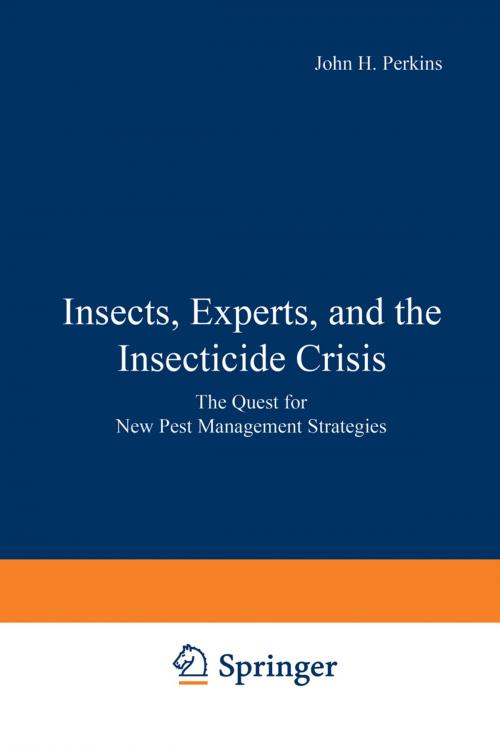Insects, Experts, and the Insecticide Crisis
The Quest for New Pest Management Strategies
Nonfiction, Social & Cultural Studies, Social Science| Author: | John H. Perkins | ISBN: | 9781468439984 |
| Publisher: | Springer US | Publication: | December 6, 2012 |
| Imprint: | Springer | Language: | English |
| Author: | John H. Perkins |
| ISBN: | 9781468439984 |
| Publisher: | Springer US |
| Publication: | December 6, 2012 |
| Imprint: | Springer |
| Language: | English |
Science and technology are cultural phenomena. Expert knowledge is generated amid the conflicts of a society and in turn supplies fuel to fire yet further change and new clashes. This essay on economic entomology is a case study on how cultural events and forces affected the creation of scientific and technical knowledge. The time period emphasized is 1945 to 1980. My initial premises for selecting relevant data for the story were ultimately not of much use. Virtually all debates about insect control since 1945 have been centered around the environmental and health hazards associated with insecticides. My first but inadequate conclusion was that the center of interest lay between those who defended the chemicals and those who advocated the use of nonchemical control methods. With this formulation of the problem, I was drawn to an analysis of how the chemical manufacturers had managed to dominate and even corrupt the work of entomological scientists, farmers, members of Congress, and regulators in the USDA and EPA. My own contribu tions to a policy study at the National Academy of Sciences were based 1 on this premise. More recently, Robert van den Bosch developed the 2 "corruption theme" in considerable detail.
Science and technology are cultural phenomena. Expert knowledge is generated amid the conflicts of a society and in turn supplies fuel to fire yet further change and new clashes. This essay on economic entomology is a case study on how cultural events and forces affected the creation of scientific and technical knowledge. The time period emphasized is 1945 to 1980. My initial premises for selecting relevant data for the story were ultimately not of much use. Virtually all debates about insect control since 1945 have been centered around the environmental and health hazards associated with insecticides. My first but inadequate conclusion was that the center of interest lay between those who defended the chemicals and those who advocated the use of nonchemical control methods. With this formulation of the problem, I was drawn to an analysis of how the chemical manufacturers had managed to dominate and even corrupt the work of entomological scientists, farmers, members of Congress, and regulators in the USDA and EPA. My own contribu tions to a policy study at the National Academy of Sciences were based 1 on this premise. More recently, Robert van den Bosch developed the 2 "corruption theme" in considerable detail.















